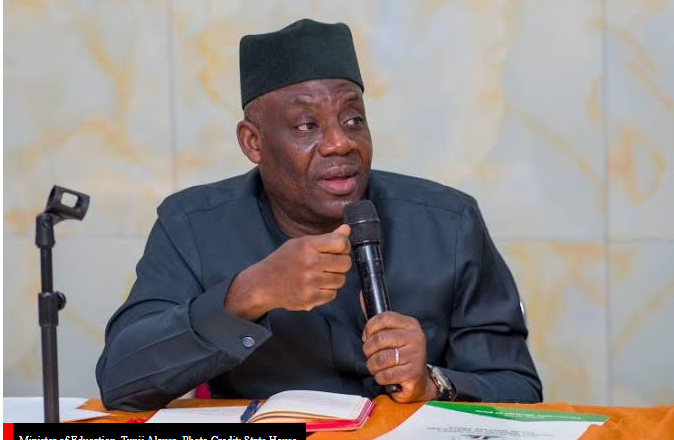The Federal Ministry of Education has launched a new three-year Communication Strategy and Framework aimed at deepening policy engagement, enhancing transparency, and strengthening public trust in Nigeria’s education sector. The initiative, unveiled on Monday in Abuja, was described by the Minister of Education, Dr. Tunji Alausa, as a blueprint for telling Nigeria’s education story “with clarity, credibility, and consistency.”
Alausa emphasised that effective communication was central to achieving the goals of President Bola Tinubu’s Renewed Hope Agenda for education. “Education is not only about classrooms and textbooks; it is about shaping the destiny of our children and the prosperity of our nation. That future cannot be built in silence; it must be explained, debated, supported, and embraced by the Nigerian people,” he said.
The minister commended President Tinubu for what he called unprecedented investments in the education sector, which had enabled infrastructure upgrades, teacher training, and the rollout of the Nigeria Education Sector Renewal Initiative (NESRI). Under NESRI’s six priority areas, he cited progress in expanding Technical and Vocational Education and Training (TVET), with over 960,000 applications processed on the new digital platform and 58,000 students already matched to training centres. From the 2025/2026 session, federal and select state technical colleges will offer free tuition, boarding, and stipends.
On basic education, Alausa disclosed that nearly 4,900 new classrooms had been constructed, 3,000 renovated, and over 353,000 furniture items supplied, reaching about 2.3 million learners. He also noted that nearly one million out-of-school children had been identified, with 35,000 reintegrated, while plans were underway to introduce bilingual smart schools in 33 states. Stressing the importance of public buy-in, the minister said education reforms could only succeed if Nigerians understood, trusted, and actively supported them.

